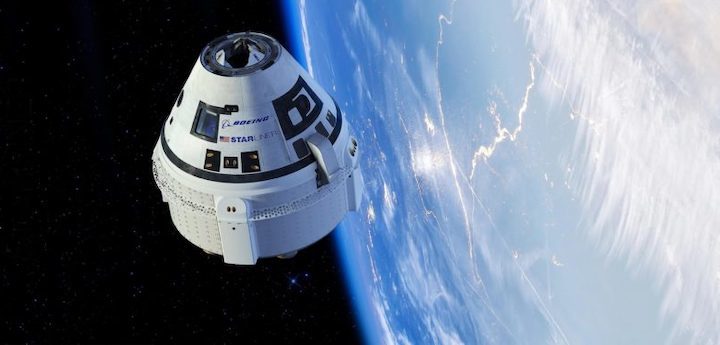24.04.2019

As the race to get astronauts to the International Space Station intensifies, so does the training required to safely get them back home – and the Space Coast is hosting much of that right here.
On Tuesday, a group of 15 rescue divers from the Air Force's 304th Rescue Squadron, part of the 920th Rescue Wing based at Patrick Air Force Base, gathered around a Boeing CST-100 Starliner capsule in the water near Port Canaveral. Several water-based exercises have been conducted, and more are planned in the Atlantic Ocean.
The exercises come during a tense period for progress toward the first launch of humans from U.S. soil since 2011. A SpaceX Crew Dragon capsule, the one that successfully launched to the ISS in March, was lost due to an explosion at the Cape. Teams were conducting test fires of its SuperDraco engines at the time.
SpaceX and NASA are investigating the incident, and delays to its inaugural flight with crews are expected.
More: Boeing delays test flights of Starliner crew capsule from Cape Canaveral
More: Launch schedule: Upcoming Florida rocket launches and landings
Though designed to land on land with astronauts after a run to the International Space Station, Starliner is undergoing the tests in the event of an emergency that would require an ocean splashdown. The Depart of Defense's Human Spaceflight Support Office is in charge of emergency recovery operations.
"What we're doing today is figuring out exactly how in the open ocean we're going to get all of our equipment there, how we're going to stabilize the capsule, get the astronauts out and then provide long-care treatment," Air Force Capt. Paul Fry, a 920th member, said.
Starliner recovery will be the subject of exercises off the Space Coast until April 27. NASA astronauts will eventually join, but currently, DoD members are being extracted from the capsule.
Boeing is currently targeting no earlier than November to launch astronauts on a United Launch Alliance Atlas V rocket to the ISS. The Cape's Launch Complex 41 will host the mission.
In the event of an emergency splashdown, astronauts will need to be retrieved from the capsule as soon as possible. Teams will use two NASA-developed pieces of equipment for the recovery: A stabilization collar and a "front porch."
The stabilization collar is a large, round orange ring similar to the ones used during the Apollo program. It serves as a flotation device for the capsule and helps ensure it stays upright. The "front porch" is similar to a lifeboat that sits near Starliner and provides immediate medical attention, if necessary.
Rescue divers and recovery teams will continue testing the equipment here for the next week or so.
"We're trying to figure out everything we're going to need," Fry said.
One of the main concerns for Starliner in the event of a splashdown is making sure the side door is above water, Maney said. The first thing teams will do is figure out how to raise the capsule, which can be done with the stabilization collar or lift bags.
More: SpaceX Crew Dragon accident clouds outlook for domestic astronaut launches
In the event of an actual emergency, teams from Patrick AFB, Charleston, South Carolina, and Hawaii will be on-call regardless of weather conditions. The latter would be used for Pacific Ocean splashdowns.
On the launch front, meanwhile, SpaceX is still targeting next Tuesday, April 30, for the launch of a Falcon 9 rocket from the Cape. An uncrewed Dragon capsule, which physically differs from Crew Dragon, will take thousands of pounds of science experiments and supplies to the ISS at 4:22 a.m.
Quelle: Florida Today
